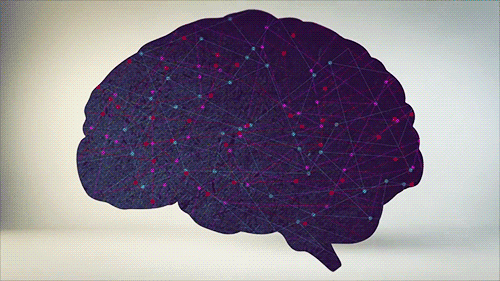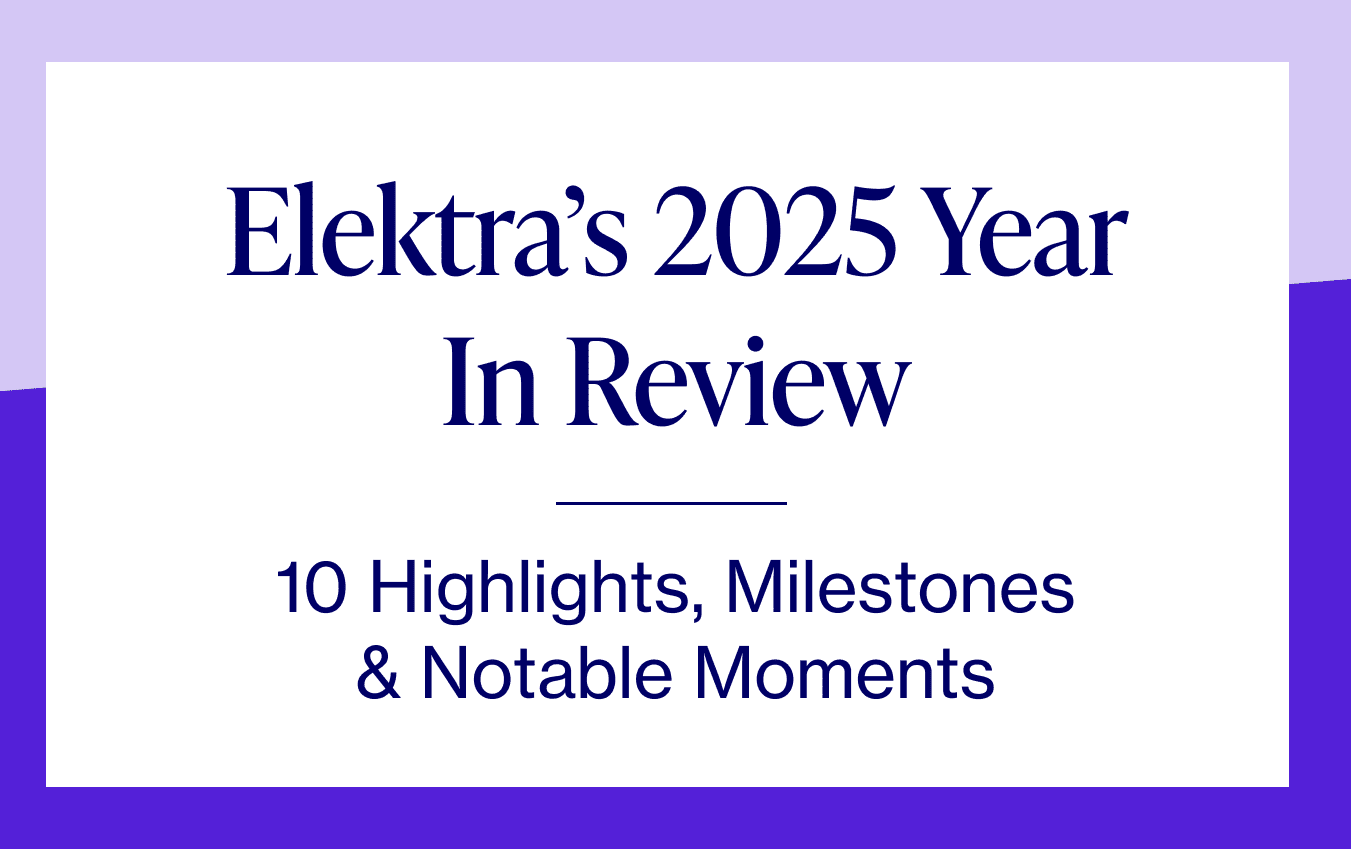
Published on Dec 18, 2023
Last modified on Dec 22, 2025
9 Foods (& Drinks) That Help With Menopausal Brain Fog
5 min read
Brain fog is a not-so-scientific term that encompasses everything from difficulty concentrating to forgetfulness/memory loss to taking longer to find the right word. It’s basically an umbrella term for feeling like you’re not as “sharp” as you once were.
And no, you’re NOT imagining it or “going crazy.” It’s a very real thing. So real, in fact, that a whopping 60% of women report difficulties concentrating — along with other cognition issues — during the menopause transition. And things get particularly bothersome during our first year postmenopausal; this is when decreases in cognitive function (think attention, working memory, verbal learning, verbal memory, and fine motor speed) are the most apparent.
Below, we explain why brain fog happens and how what’s on your plate can actually play a bigger role than you may think.
Let’s dig in, shall we?
Why brain fog happens
During the menopause transition, estrogen levels drop. When that happens, there’s a drop in the brain’s metabolism of glucose, which is its primary fuel source. The result? Feeling “off your game.”
This is a direct effect of hormone changes on brain power, but there are also indirect effects.
Declining estrogen is related to other common symptoms experienced by menopausal women: lack of sleep, fatigue, depression/anxiety, night sweats. And these, in turn, can contribute to brain fog.
Short-term brain fog vs long-term cognitive health
Brain fog during perimenopause is linked to shifting hormones. And while this pesky symptom may persist for a few years, it’s ultimately short term compared to something like overall cognitive health, which is more of a long-term consideration.
The foods listed below are great for long-term brain health and wellness, but they MAY also help in the short term by supporting hormonal health (thanks in part to B vitamins, a deficiency of which has been tied to impaired cognitive function, as well as vitamins C & D, antioxidants, and magnesium).
That said, if your perimenopausal brain fog is significant, dietary changes alone won’t move the needle in a meaningful way — instead, you’d need to explore things like HRT to help ease night sweats, talk therapy to help with mood, or lifestyle changes (i.e. single-tasking, list-making, etc).
9 foods (and drinks) that can help with brain fog
“Brain food” isn’t just a catch phrase…there’s some real science behind the role that a balanced diet plays in supporting brain health. Here are the superstar foods to help nourish your noggin:
1. Dark leafy greens
Greens such as spinach, Swiss chard, dandelion greens, and kale are filled with minerals, fiber, and vitamins, such as folate and lutein, to help support the nervous system and help slow cognitive decline.
2. Berries
Antioxidant-rich blueberries, blackberries, strawberries, and raspberries (as well as less-common gojij berries and mulberries) have a low glycemic index, meaning they won’t dramatically spike blood sugar.
A study published earlier this year in The American Journal of Clinical Nutrition identified anthocyanins as the secret behind the power of blueberries in particular (anthocyanins are why blueberries have a signature dark blue pigment). The study participants who consumed blueberries were better at recalling word lists and exhibiting improvements in task switching.
For double the brain benefits and a hefty dose of vitamin C, whip up a smoothie with frozen berries AND spinach.
3. Fish
In addition to being great sources of protein, fatty fish like trout and salmon are full of omega-3 fatty acids, a type of fat that our body can’t produce. The three most common forms are eicosapentaenoic acid (EPA), docosahexaenoic acid (DHA), and alpha-linolenic acid (ALA).
Trout and salmon are also great sources of vitamin B12, which helps maintain nervous system health, and choline, an essential nutrient that supports the nervous system and metabolism.
4. Extra virgin olive oil
Although there’s no one best diet for everyone, the Mediterranean diet has been associated with better cognition, as well as better sleep quality and cardiovascular health. (Important: when we say “associated,” we mean there’s a correlation, not causation.)
It’s low in saturated fats and animal proteins, rich in antioxidants and fiber, and loaded with B vitamins. It’s also anti-inflammatory, low-carb, and low-sugar. And because it nixes most refined and concentrated sources of sugar and instead focuses on non-starchy veggies, beans, fruits, and whole grains, it’s considered a “low-glycemic diet,” meaning it won’t dramatically spike your blood sugar…this is what your brain cells want!
One of the key ingredients in a Mediterranean diet is extra virgin olive oil, which is chock-full of omega-3 fatty acids and vitamin E to support the heart and, in turn, the brain.
5. Flaxseed oil
Flaxseed oil is another good source of omega-3 healthy fats and vitamin E to help combat brain fog. It also happens to be rich in phytoestrogens, a plant-based compound that may help offer relief from hot flashes. Bonus points for the fact that it’s versatile, too. We recommend swapping it in for other types of oil in dips and sauces, or adding a tablespoon to your morning smoothie. Keep in mind, though, that because of its high smoke point, flaxseed oil should not be used for cooking.
6. Raw cacao
Cacao in its raw form — which you can find at Whole Foods or other organic retailers — is a superfood rich in theobromine, an antioxidant that helps support cellular aging. It’s also rich in flavonoids, which help improve blood flow and, in turn, brain function. It tastes great in smoothies (noticing a theme here?) and can also be a good substitute for milk or dark chocolate.
7. Water
The brain is composed of 80% water, and it’s necessary for energy production. Even small amounts of dehydration can cause brain fog, as well as fatigue, dizziness, and brain shrinkage (yes, your brain can actually shrink). So be sure to stay hydrated! A good rule of thumb is to drink enough so your urine is clear or pale yellow and you don’t feel thirsty.
8. Turmeric
Turmeric boasts a long list of nutritional benefits thanks to its star chemical compound, curcumin. Although the research on how it impacts mental clarity and overall brain health is still ongoing, early evidence indicates that it may help improve memory and attention.
9. Fermented foods
While we normally think about fermented foods like yogurt, sauerkraut, and kimchi in relation to gut health, there’s actually a link between our gut and our brain. Here’s why: the gut sends certain hormones and neurotransmitters (i.e. chemical messengers) throughout the body and up to the brain.
One of the largest studies to date on this topic is still ongoing, but early results are promising. According to lead researcher and PhD candidate Ramya Balasubramanian, “I expected only a few fermented foods would show up, but out of 200 fermented foods, almost all of them showed the ability to exert some sort of potential to improve gut and brain health. Fermented sugar-based products and fermented vegetable-based products are like winning the lottery when it comes to gut and brain health.”
In addition to eating fermented foods, eating foods with prebiotic fiber, like oats, legumes, and root vegetables, can support this gut-brain connection by feeding that good bacteria necessary for a healthy digestive system.
IMPORTANT: Nothing about nutrition is one-size-fits-all, and recommendations will change based on activity level, health goals (i.e. weight loss, weight gain), body composition, health conditions, and more. Be sure to consult a dietitian or nutritionist for personalized guidance.
READ MORE: Understanding the Connection Between Gut Health and Menopause
Menopausal brain fog vs Alzheimer’s disease
How do I distinguish between the two?
Although menopause-related brain fog may look like early-onset Alzheimer’s disease, there are certain important distinctions between the two.
While the symptoms and side effects of brain fog can overlap with those of Alzheimer’s (difficulty remembering things, coming up with words, and maintaining focus), getting Alzheimer’s before age 65 is rare. The menopause transition happens in our 40s-50s, and cognitive symptoms often subside once we’re a few years post-menopausal.
That said, there are some behaviors that warrant cognitive evaluation, including:
- Getting lost in familiar places
- Difficulty performing daily tasks
- Repeating statements many times
Talking with your OB-GYN or healthcare provider early and often about menopausal symptoms can help alleviate fears of Alzheimer’s disease.
Is there any correlation between menopause and Alzheimer’s?
We do know that experiencing menopause at a younger age is associated with an increased risk of Alzheimer’s. In one study, women who went into menopause between the ages of 41-46 had a 29% higher chance of developing Alzheimer’s than those who hit menopause between 51-55.
But…and this is important…menopause itself does NOT cause Alzheimer’s. Estrogen is just one link in the complex nature of dementia, and we need more research to better understand the genetic, gender, hormonal, and metabolic risk factors for this disease.


